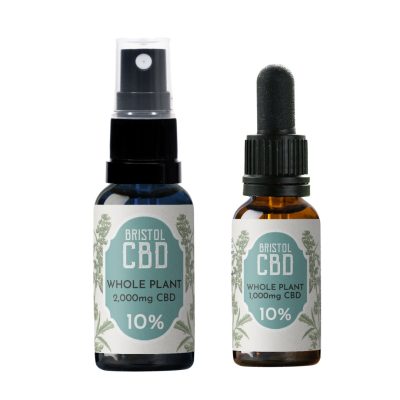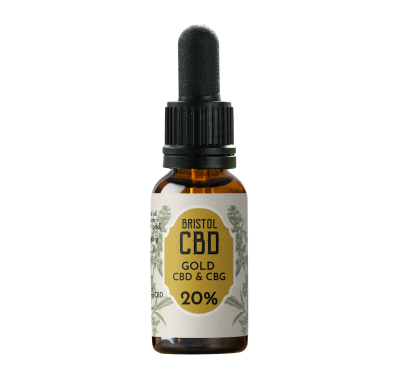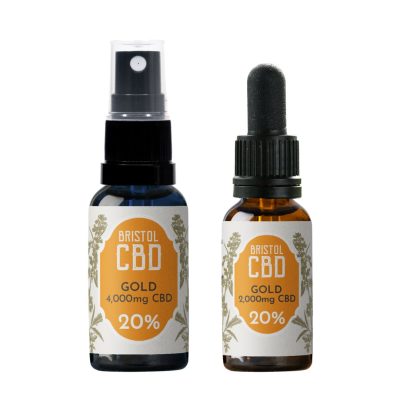Parkinson’s disease (PD) is a progressive neurological disorder that affects millions worldwide, often causing a mix of motor and non-motor symptoms that can significantly impact daily life. As traditional treatments sometimes fall short in addressing all aspects of the condition, many people with Parkinson’s are exploring alternative options like cannabidiol (CBD). In this blog, we’ll dive into what Parkinson’s is, how CBD might help, what research says about CBD and Parkinson’s disease, and what to consider if you’re thinking about trying CBD for PD symptoms.
What is Parkinson’s Disease?
Parkinson’s disease is a neurodegenerative disorder characterized by the loss of dopamine-producing neurons in a part of the brain called the substantia nigra. This dopamine deficiency leads to a range of symptoms, including:
- Motor Symptoms: Tremors, slowness of movement (bradykinesia), muscle stiffness (rigidity), and balance issues.
- Non-Motor Symptoms: Anxiety, depression, sleep disturbances, pain, and, in some cases, psychosis (hallucinations and delusions).
According to the Parkinson’s Foundation, about 10 million people globally live with PD, and its symptoms typically worsen over time. Standard treatments, like levodopa, help manage motor symptoms by replenishing dopamine, but they may not fully address non-motor symptoms and can cause side effects like dyskinesia (involuntary movements). This has led many to seek complementary approaches, such as CBD.
What is CBD?
CBD is a non-psychoactive compound found in the cannabis plant, meaning it doesn’t produce the “high” associated with THC (tetrahydrocannabinol). It interacts with the body’s endocannabinoid system (ECS), which helps regulate mood, pain, sleep, and inflammation—functions often disrupted in Parkinson’s. CBD is available in various forms, including oils, capsules, edibles, and topicals, making it versatile for different needs. While CBD is legal in many regions as a supplement (often derived from hemp with less than 0.3% THC), its legal status varies, so always check local regulations.
Recommended Products
-
10% Gold, Full Spectrum CBD Oil – Mild Taste
£49.99 – £89.99 -
10% Whole Plant, Full Spectrum CBD Oil
£46.99 – £84.99 -
20% Gold CBG and CBD Full Spectrum Oil
£90.00 -
20% Gold, Full Spectrum CBD Oil – Mild Taste
£89.99 – £169.99 -
20% Whole Plant, Full Spectrum CBD Oil
£84.99 – £159.99
CBD and Parkinson’s: What Does the Science Say?
Research into CBD for Parkinson’s is still in its early stages, but some studies suggest it may help with both motor and non-motor symptoms. Here’s a look at the current evidence:
- Non-Motor Symptoms: CBD shows promise for managing non-motor symptoms like anxiety, depression, and sleep issues. A 2019 study published in The Permanente Journal found that 79% of participants using CBD for anxiety saw improvements within a month, which could benefit those with Parkinson’s-related anxiety. A 2014 study in the Journal of Psychopharmacology involving 21 PD patients reported improved quality of life scores with CBD (300 mg/day), though motor symptoms didn’t change significantly. Visit The Permanente Journal and Visit Journal of Psychopharmacology.
- Psychosis: Up to 50% of people with Parkinson’s experience hallucinations or delusions, especially in later stages. A small 2009 study in Journal of Psychopharmacology found that CBD reduced psychotic symptoms in six PD patients without worsening motor symptoms. A larger UK trial, ongoing as of 2019, is testing CBD’s effectiveness for PD-related psychosis, with researchers at King’s College London aiming to confirm the ideal dosage and safety.
- Motor Symptoms: Evidence on CBD’s impact on motor symptoms like tremors and rigidity is mixed. A 2024 US trial involving 61 PD patients found that those who received CBD for 2-3 weeks experienced slight improvements in motor symptoms compared to a placebo, but the difference wasn’t statistically significant. Another 2020 study on 13 PD patients using Epidiolex (a CBD-based medication) reported improvements in tremor, nighttime sleep, and emotional regulation, though larger trials are needed. While these studies were published in various journals, they align with broader research on CBD’s effects on neurological conditions.
- Neuroprotection and Inflammation: Lab studies suggest CBD has anti-inflammatory and antioxidant properties, which could theoretically protect neurons from further damage in PD. A 2020 review in PMC highlighted CBD’s potential to reduce inflammation and oxidative stress, key factors in PD progression, but these findings are mostly from animal studies and haven’t been confirmed in humans. Visit PMC.
- Sleep and Pain: Sleep disturbances, such as insomnia and REM sleep behavior disorder (RBD), are common in PD. A 2016 case report in The Permanente Journal noted that CBD reduced RBD symptoms in a young girl, and a 2014 study found that CBD improved pain in PD patients. These benefits could indirectly improve quality of life by addressing non-motor challenges.
While these findings are encouraging, most studies are small, and larger, placebo-controlled trials are needed to confirm CBD’s efficacy for Parkinson’s. The FDA has only approved CBD (as Epidiolex) for certain rare forms of epilepsy, not for PD, so its use remains experimental for this condition.
CBD and Parkinson’s Disease: Anecdotal Evidence and User Experiences
Many people with Parkinson’s have shared positive experiences with CBD in online forums and social media. For example, a 2025 post on X from a user described how a few drops of CBD oil noticeably reduced their tremors within minutes, improving their ability to perform daily tasks. Others report that CBD helps them feel less anxious, sleep better, or manage pain, which can make a big difference in their overall well-being.
However, not everyone sees the same results. Some users find CBD ineffective for motor symptoms like tremors, and others mention mild side effects like drowsiness. These stories highlight the importance of individual experimentation under medical guidance. If you’re interested in trying CBD for Parkinson’s symptoms, you can explore options like Bristol CBD’s 20% Whole Plant CBD Oil at https://www.bristolcbd.co.uk/product/20-whole-plant-cbd-oil/, which may support relaxation and stress relief, though results can vary.
Things to Consider Before Trying CBD for Parkinson’s
If you’re thinking about using CBD for Parkinson’s, here are some key points to keep in mind:
- Consult Your Doctor: CBD may interact with Parkinson’s medications like levodopa or other drugs for anxiety and depression. A healthcare provider can help assess potential risks and benefits, especially since CBD’s effects on PD are not fully understood.
- Start Low and Go Slow: Begin with a low dose (e.g., 5-10 mg/day) and gradually increase, monitoring for side effects like drowsiness or changes in mood.
- Choose Quality Products: Look for third-party-tested CBD products with clear labeling about CBD content and no harmful additives.
- Understand Legalities: Ensure CBD is legal in your area, as regulations vary widely.
- Set Realistic Expectations: CBD is not a cure for Parkinson’s and may not work for everyone. It’s best viewed as a complementary approach to standard treatments.
The Future of CBD and Parkinson’s
The potential of CBD for Parkinson’s is an exciting area of research, but we’re still far from definitive answers. Ongoing trials, like the UK’s CAN-PDP study on psychosis and US studies on motor symptoms, may provide clearer insights in the coming years. Researchers are also exploring whether CBD’s neuroprotective properties could slow PD progression, though human studies are lacking. For now, CBD remains a promising but unproven option for symptom management.
Final Thoughts
Parkinson’s disease presents unique challenges, and finding effective symptom relief is a priority for many. While CBD isn’t a replacement for standard treatments, its potential to ease non-motor symptoms like anxiety, sleep issues, and pain makes it an intriguing complementary option. By staying informed, working with your doctor, and approaching CBD thoughtfully, you can decide if it’s worth trying as part of your Parkinson’s management plan.
Have you or a loved one used CBD for Parkinson’s symptoms? Share your experiences—we’d love to hear your story!
Disclaimer: This blog is for informational purposes only and not a substitute for medical advice. Always consult a healthcare professional before starting any new treatment, including CBD.











